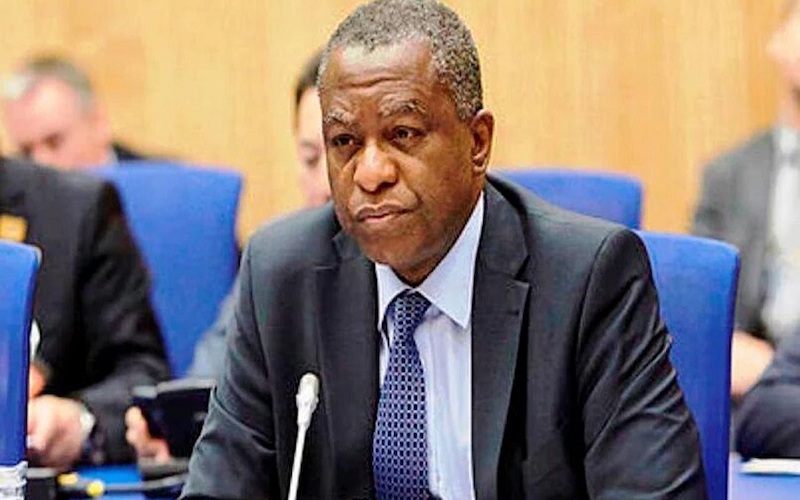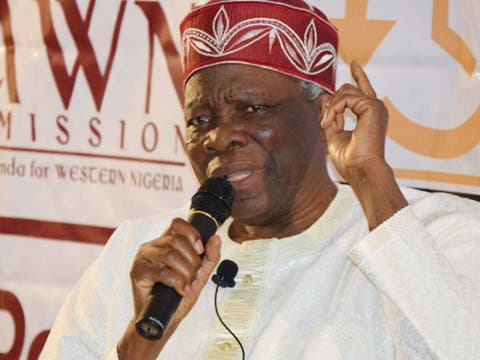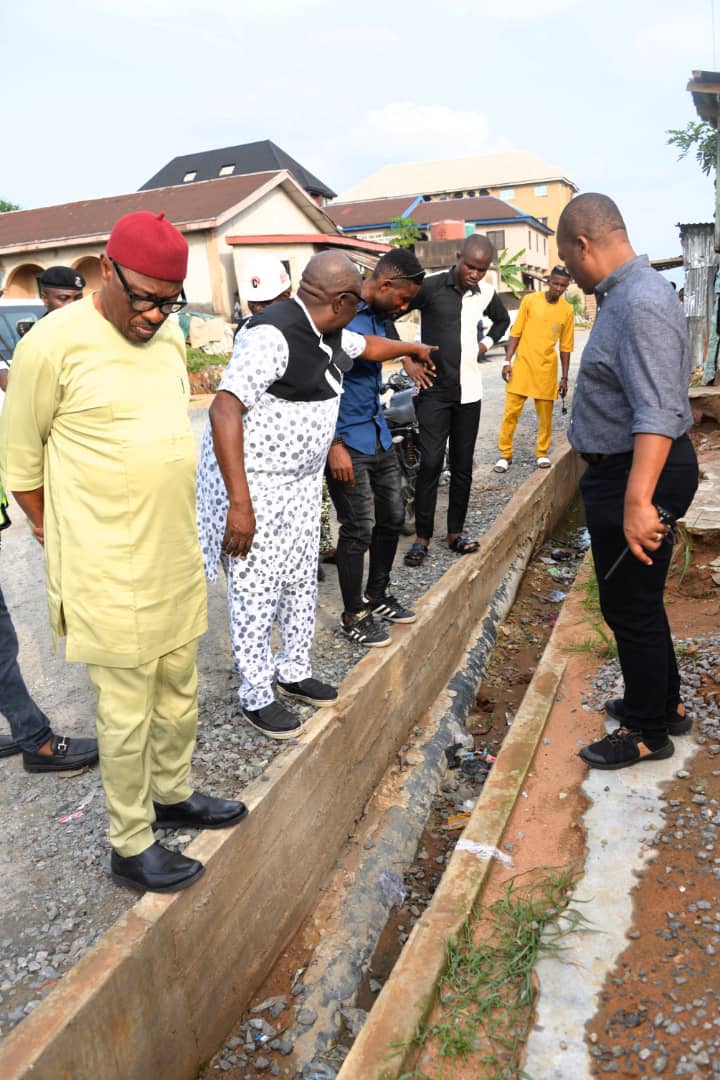Rethinking Nigeria’s Industrial Progress

Recent data from the National Bureau of Statistics has caused Nigerian industrialists and economic experts to ponder on what went wrong and the ways to revive the country’s comatose manufacturing sector, writes Dike Onwuamaeze.
In July, the National Bureau of Statistics (NBS) released a report that placed side by side Nigeria’s import of manufactured product and the country’s volume of export of manufactured goods between January 2017 and March 2021.
The NBS’s report put it that N40.94 trillion was spent on the importation of manufactured goods while N4.22 trillion was earned from the country’s export of manufactured goods within the same period.
The report also stated that the total value of the country’s export during the period was N67.30 trillion, which showed that the value of manufactured export was 6.35 per cent of the total export earnings.
Moreover, the value of Nigeria’s export was dominated by sales from crude oil that was N49.31trillion compared to manufactured goods that earned N4.22trillion.
This statistic portrayed a low performance of the Nigerian industrial sector that is believed to be in a steady steep decline for over 30 years now.
The President of the Nigeria Employers’ Consultative Association (NECA), Mr. Taiwo Adeniyi, declared on July 15 during the association’s 64 annual general meeting that, “Nigeria is a net importer of manufactured goods.”
The real contribution of the manufacturing sector to the nation’s gross domestic product (GDP) in the fourth quarter of 2020 was estimated at 8.60 per cent, which is lower than the 8.74 per cent recorded in the fourth quarter of 2019 and the 8.93 per cent recorded in the third quarter of 2020. At the end of 2020, the annual contribution of the manufacturing sector to Nigeria’s GDP stood at 8.99 per cent.
Similarly, the World Bank’s national accounts data and OECD national accounts data files said that the percentage of Nigeria’s manufacturing value added to the GDP was 21.21 per cent in 1983, which plummeted to 6.553 in 2010 but inched up to 12.666 in 2020.
Progressive Decline
An Economist, and former Director General of the Lagos Chamber of Commerce (LCCI), Dr. Muda Yusuf, put it succinctly in an interview with THISDAY during the weekend. Yusuf said: “The Nigerian manufacturing sector has been practically on a progressive decline since the early eighties. For the first decade after independence, the sector grew on the back of resource-based industrialisation where industrialisation was shaped by raw materials available in the country.”
However, one question on the lips of the operators of the country’s manufacturing sector has been: why is Nigeria where it is today in manufacturing having had a true head start in industrialisation before most of the Asian countries that have presently industrialised their economies?
For Nigeria’s former Minister of Industry, Mr. Bamanga Tukur, who was a discussant on Manufacturing, Growth and Job Creation, that was hosted recently by The Founder of the Centre for Value in Leadership (CVL), Professor Pat Utomi, said Nigeria missed the opportunity to industrialise its economy as a result of its weak industrial development policy and the country’s failure to actualise the Ajaokuta steel project.
Tukur said: “Nigeria missed the opportunity of becoming and industrialised nation because it failed to bring to fruition the Ajeokuta Steel Complex, which caused the inability to provide materials like flat sheets for car assembly plants to sustain Peugeot, Volkswagen and Leyland.”
Speaking in the same vein, another former Minister of Industry, Mr. Charles Ugwu, said during the CVL event that Nigeria deviated from the path of industrialisation in 1985 when it embraced the Structural Adjustment Program (SAP) that exposed the value of the Naira to the vagaries of market forces of demand and supply.
Ugwu said: “We started very well at independent and were doing many things right and ahead of many industrial nations. Unfortunately in 1985, we opted for devaluation and began a slide to catastrophic failures. 1985 was a Tuswani that destroyed everything we have built. We destroyed the renascent industries and enterprises through the devaluation of our currency, which took down everything we had built. In my mind this was point we went into disaster and all our industries came crashing.”
Ugwu, who was former President of Manufacturers Association of Nigeria (MAN) and the owner of Rokana Industries and Hydro Resources Industries Limited, was of the opinion that Nigeria should imitate Malaysia that dabbled into market determined exchange rate but quickly retraced its steps to save its industries.
“What annoys me is that we are still going in the same direction. Haven’t we learnt in 35 years that we are going in a wrong direction? That the route of devaluing the Naira and depreciating the currency isn’t the way?
“In 1985, Malaysia was at the same point with us. They devalued once and their economy crashed. So, they fixed the exchange rate of their currency and got it right and continued with their industrial growth. But in our own case we continued to devalue from a dollar equivalent to N1 we have gone down to where N500 is chasing $1. This is the disaster that nobody can survive.
“My suggestion right now is that we must now wipe the slate, start afresh with the right management of the exchange rate. If the exchange rate is stable, we can borrow all the money we need to build our economy,” Ugwu said.
Industrial Sector Collapse
Yusuf traced the collapse of the country’s industrial sector to the transition from growing the sector with raw materials available in the country to import substitution strategy of industrialisation following the oil boom as there was enormous foreign exchange to import raw materials in abundance.
“But with collapse of oil prices in the early eighties, the manufacturing sector began to suffer considerable setback as there was insufficient foreign exchange to support the high volume of imported industrial inputs, which the sector is still grappling with till date, “he added.
Another participant at the CVL event and a Professor of Economics at the University of Nigeria Nsukka, Professor Osita Ogbu, traced the decline of Nigeria’s industrial sector to the manner the country jettisoned national economic planning and as severance of the government from playing prominent role in the economy all because of the misguided believe that “government has no business in business.”
Ogbu argued that government has serious business in business since it is in charge of the policies that regulate the business environment.
“The state is the leader sending the signals that this where we want to go. The government has to put the vehicle (economy) in place before the private sector will become its driver. The state is so critical in directing manufacturing and industrialisation.
“President Obama said that the technology with which they are mining Sahel Oil came from a 30 year investment of the Federal Government of the USA. Thirty years of investment on the technology that the private sector will use.
“Yet, we were told that planning was an archaic instrument that should be left behind,” Ogbu said, adding that Nigeria “moved from industrial policy to no policy in the so called free market without a strategic industrial policy when all the country needed to do was to modify its “import substitution policy and rearticulate it in view of the new circumstances we find ourselves. But to throw the baby away with the bath water was a big mistake.”
Market Economy
On his part, a former Deputy Governor of the Central Bank of Nigeria, Professor Kingsley Moghalu, believed that Nigeria embraced free market capitalism too soon without the laying the foundations needed to create wealth effectively and efficiently under a capitalism system.
“These policy errors, including a premature embrace of globalisation without the structural foundation to become part of the production value chain of globalisation — and thus competitive in it — have turned Nigeria into a global market but not a global producer of the hard goods of the globalised economy. It is going to require political leadership with a sophisticated understanding of economic transformation and the capacity and will to execute it, if Nigeria is to be able to change course in the years ahead,” Moghalu said.
He added that Nigeria required industrial policy as the basis for its push toward economic diversification.
He said, “Industrial policy requires a certain amount of state intervention even in a market economy, provided that such intervention is targeted and ultimately productive for broad manufacturing sectors, as opposed to special favors for individual industrialists that distort the market playing field for competitors in the same sector. Industrial policy will typically include identifying areas in which productive knowledge exists to confer competitive advantage, targeted subsidies for export industries, special economic zones, import-substitution industrialization, and temporary protectionist measures for some key sectors such as manufacturing.”
A veteran of the Nigerian industrial sector and former Group Managing Director/CEO of Dangote Cement Plc, Mr. Joseph Makoju, identified poor implementation of industrial policies as one of the bame of Nigerian economy.
He said that policy implementations were jettisoned at the first sign of pains the country needed to endure in order to push through.
“Policies are not well implemented because momentarily pains cause us to retreat. The second thing is vested interest: When a policy being implemented begins to affect vested interests. This is why we have a lot of history of u turns that sabotaged good policies. Nigeria must get its industrialisation right because there is no other way around it.
“The contribution of manufacturing to the GDP is one major yardstick for a country to move to developing countries. The benchmark is usually around 12.5 per cent to be classed as a developing economy. In the 1970s Nigeria got to 12.5 per cent when we had the steel rolling plants, the breweries.
“The major thing that went wrong was that devaluation under the SAP regime that was meant to force us to look inward, which was impossible in an economy that prints oil money every month.
“We rushed too quickly in getting the government to take its hand in industrial policy and planning. But the successes we saw after independence were as a result government involvement. An example is the cement industry which is a key success reference point. Nigeria had comparative advantage in terms of raw materials. In 1982, Nigeria was the largest importer of cement in the world. But because of a deliberate government policy in the form of backward integration policy that gave importers targeted incentives to go into manufacturing, today Nigeria is a cement producing and exporting country. What has been done with cement could have been replicated in so many other areas, ”he stated.
National Development
Nigeria, according to Yusuf, had well-articulated national development plans from the early sixties to the mid-eighties with robust plans for industrialisation.
“Subsequently, a few major policy documents have been released by the government.
First, was the National Economic Empowerment and Development Strategy (NEEDS) document, which was put in place during the regime of President Olusegun Obasanjo.
“The major thrusts of this policy document included radical increase in local value addition at every stage of the manufacturing chain, the reduction of the export of primary products and encouragement of local processing of such product.
“Other objectives of the NEEDS included promotion of total factor productivity, backward and forward linkages in some niche sectors and the development of appropriate science and engineering infrastructures that would support industrial development, “he added.
He said the target for the industrial sector under this policy was to achieve seven per cent annual growth on manufacturing and increase capacity utilisation to 70 per cent by 2007.
“The policy also aimed at removing all infrastructure constraints and established industrial clusters and industrial parks. It also focused on export-oriented manufacturing sector and procurement policy that support local production.
“Evidently, the NEEDS document was an excellent document with very rich content for the transformation of the Nigerian economy. But the reality is that its lofty goals have not been achieved. The sector is still as weak today as it was when the NEEDS document was put together. The NEEDS document was succeeded by the Seven Points Agenda of the late President Yar’Adua’s administration. This agenda also had very robust content for industrialisation strategy,” Yusuf said.
“The story was the same with the regime of former President Goodluck Jonathan when we had the transformation agenda. However, at the twilight of his administration, he launched the Nigerian Industrialisation Revolution Plan (NIRP), which specifically focused on industrialisation and it is worthy of note that the current administration has adopted the NIRP as its policy document for the promotion of industrial development.
I believe this is in good spirit of ensuring continuity of policies that are found worthy. Presently, the NIRP compliments the Economic Recovery and Growth Plan (ERGP),” Yusuf said.
The Director General of NECA, Mr. Timothy Olawale, told THISDAY that Nigeria must improve export potentials in the manufacturing sector by addressing “some fundamentals mitigating the sector, which includes provision of friendly business environment, access to foreign exchange for productive activities, improved infrastructural facilities, most especially electricity, which constitutes about 40 per cent of production cost, and increasing insecurity in the country.
“There is need to develop policies and initiatives to support sectors with export potentials should be top priority for national development. Attracting investors with incentives and tax rebates would address the critical need.”
Similarly, the Director General of the Nigerian Association of Chambers of Commerce, Industry, Mines and Agriculture, Ambassador Ayo Olukanni, identified over reliance on imported intermediaries inputs as an indication that Nigerian manufacturers are yet to complete production process with locally made inputs.
Olukanni suggested the need to scale up export through interventions such as the Export Development Fund must be scaled up as, “strategic option to close the gap between our import bill and export bill. Infrastructure problems around our ports also deserve attention and like we have been constantly reminded we should eat more of what we grow and scale down on imported food items.”
He also stated, “Nigerian manufacturing sector would experience a revamp when it is flexible to new innovations and production process is in line with the demands of modern day.
‘The manufacturing sector is an important criterion in assessing a nation’s development. The government has a major role to play in the revival of our manufacturing sector as it tends to solve many problems bedeviling the country.”
Experts also suggested that Nigeria should focus on agro related industry that would use local inputs rather than foreign input to remain competitive.
Yusuf said: “The Nigerian manufacturing sector is too dependent on import, which is a major shortcoming of the Nigerian manufacturing sector. The sector accounts for about three per cent of foreign exchange earnings and over 30 per cent of import bill. This demonstrates that the sector is not properly aligned with the vision of self-reliance being promoted by the current government.
“Local value addition is still very low. The most sustainable segments of the manufacturing sector are the food and beverage industries and the cement industries where the local content is well over 60 per cent. This explains the competitive strength of these segments.”
He articulated the way forward to include addressing systemic issues of infrastructure as a matter of utmost priority and immediate focus should be on electricity supply and logistics. “Unless we have these two critical infrastructures in place, it will be very difficult to ensure a competitive industrial sector and to make possible the transformation of the sector. We should focus on labor-intensive industries to enhance job creation and promote economic inclusion.We should ensure that there is adequate investment in core industries such as iron and steel and petrochemicals,” he said.
Utomi also said that Nigeria needed the involvement of a government that is slim and strong in its industrialisation process. “Most of the things that happened in Singapore were as a result of government involvement. Its port was run by the public sector and was as efficient as any port in the world,” he said.
Experts also highlighted the need to link our universities to industries and the revival of technical education to produce skills needed in the manufacturing sector of today.
– Thisday








